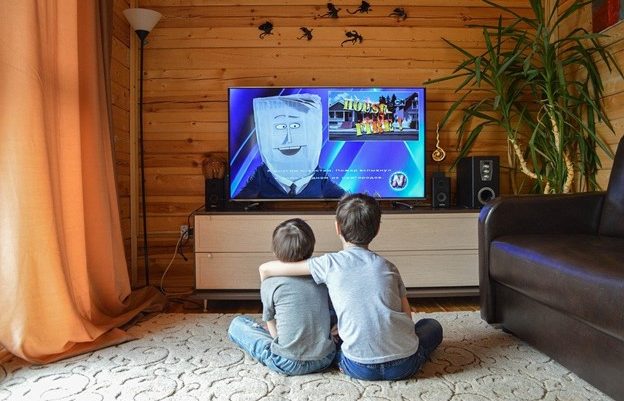
As you may have guessed, this article will cover the basics of buying a TV. We’ll be answering questions like how big should my TV be? What are some things to look for in order to find the right TV for me? And what is the difference between an LED and LCD screen? All these questions will be answered in detail so that by the end of this article you will know everything there is to know about TVs!
What To Look For In A New TV
When buying a TV, there are many things you must consider in order to find the best TV for your needs. First off, if you’re watching movies or playing video games, then you’ll want a TV that can support these activities. Generally, TVs with a 120hz screen refresh rate will be ideal for gamers and users who watch a lot of sports. Movies look great on an HDTV, so look out for 1080p resolution when watching movies on your new set!
Smart TVs are becoming more and more popular with the number of apps that have been developed for them, so why not get a smart TV? In some cases, a regular TV will do just fine, but if you are a part of a younger generation, then regular TV’s just won’t do. There are some great smart TVs out there, so who would want a regular CRT TV with linear programs when they can choose what to watch at any given moment? Smart TVs used to cost a fortune, but in recent years, those features have become increasingly common in most TV brands, and today the price difference is not as big of a deal as it used to be.
Do Research Offline And Online And Compare Prices
Once you know what kind of TV you’re looking for, do some research online and compare the prices of TVs that fit your description. Sometimes the same exact product can be sold by different companies for different prices, so it’s important to read reviews before deciding on a purchase. Also, remember to shop around, as most places will have their own sale going on at one point or another.
If you have any questions about specific brands or models, then don’t be afraid to ask the salesperson working there. Chances are they’ve been informed on all these things before and would love nothing more than to help you out as much as possible! Remember that this is a person who wants to see you leave with a smile on your face and a new TV in your home. If the salesperson doesn’t seem willing to help you, then feel free to say something about it and ask for another salesperson who will be happy to provide you with what you need!
How Big Should My TV Be?
When thinking about buying a TV, one of the first things that come to mind is how big this new piece of technology should be. Generally speaking, bigger is better-that means that if you are planning on using your TV mainly for movies or gaming, then having a larger screen size will result in an even better experience. Most experts recommend going with 42 inches or larger if possible. However, if you aren’t planning on using your TV for playing games or watching movies, then there is no point in spending extra money on a large TV.
Once you have decided on the size of TV you want to buy, it’s time to start looking for other features that are important to have. When deciding on the right model, look out for things like how many different apps your TV can access or how fast your TV will be able to refresh images per second if you’re a gamer. These features may not seem too important at first, but once you start using your TV more and more, these can become major factors in determining whether or not you’re satisfied with your purchase.
LED Vs. LCD
LED screens use a thin layer of semiconductor material to generate light when electricity is passed through them (the “LED” stands for “light-emitting diode”). This method allows TVs to produce deeper black levels than their LCD counterparts. Because traditional backlighting methods (fluorescent) create a significant amount of heat and require bulky power sources, LEDs allow the slim profile we see today on modern TVs and devices. The main drawback of LED TVs is that because light output depends on both the number and power of the LEDs, a full-screen white image will not be as bright as an LCD TV.
LCD screens rely on liquid crystals to generate colors when electricity passes through them. Their color reproduction is less accurate than OLEDs due to the fact that they use a filter layer above the pixels to control their brightness, but this also allows for much better response time and greater viewing angles. Because LCDs do not emit their own light, there’s no risk of overheating while using your TV for long periods of time, which makes them great for gamers!

If you’re thinking about buying a new TV, we hope this article has given you some helpful tips and tricks on how to find the perfect one for your needs. Whether you want it mainly for watching movies or playing video games, we’ve got some advice that will help make sure you leave with a smile on your face and a new TV in your home, you’re also satisfied! Remember, bigger is better but don’t let cost be an issue as sometimes TVs can come at different prices depending on where they are purchased from.
